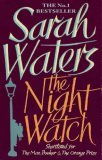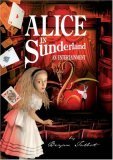In the last three days I’ve been on the road, meeting people, enjoying the new train franchises (up to a point) and promoting the future (cautiously). In addition, magpie-like, I’ve been picking up trifles to feather the Word of the Day nest. No new words, but reading free papers in the hotels I was delighted by two items that made me think there’s scope for a series on business and education when I run out of words for the day:
‘Carpetright chief piles on the incentives for academy teachers‘ Financial Times, 28 November 2007
“When it comes to hiring and retaining teaching talent for his academy schools, Lord Harris of Peckham, chairman and chief executive of the Carpetright chain, has got it covered. Successful applicants can look forward not only to bonuses of up to £200 under a novel payment-by-results scheme, but also 15 per cent off all their flooring needs at any one of the outposts of his carpet empire.”
The paper adds (in anticipation, I assume, of the derision of its normal readership): “The scale of inducements being considered may seem modest by City standards.” At least the FT had the wisdom to provide a little background on payment by results, including a critical comment from Headteacher – sorry: ‘High Master’ – and former English teacher Martin Stephen, of St Paul’s School, London: ‘Mr Stephen concluded: “You are actually damaging the child.”‘
Excellence, outcomes and culture change
The Independent, meanwhile carried an advertisement from The Department for Children, Schools and Families (DCSF). (In a strange link, someone told me this week that she remembered the Department’s new initials by calling it the ‘Department for Curtains and Soft Furnishings’; are they sponsored by Carpetright too?) Anyway, DCSF have ‘launched a bidding process to award a grant to deliver the business of the Centre for Excellence and Outcomes (CfEO) in Children and Young People’s Services.’ That’s quite convoluted, isn’t it? ‘To award… to deliver the business..’. Doesn’t one ‘carry out’ a business? Ah, but the CfEO ‘will likely be a virtual body’, which explains a lot, such as the brief ‘to influence the required practice and culture change’. As if changing the culture weren’t enough (getting rid of post-modernism, perhaps, and re-introducing logical positivism?), the CfEO has also ‘to support a focus on outcomes and action’ – rather than ‘a soft focus on soft furnishings’?
Sorry, I can’t link to the advertisement itself (when I tried the ‘Independent’ website said it was an ‘IllegalArgumentException: No bean specified’, old bean…), so those big enough for blue skies thinking on culture change need to go to the Every Child Matters site.
Stephen rightly said this kind of thing was self-parodying, so I apologise that I couldn’t resist the extra jibes.
Comments are now closed on this item

 The period running up to Armistice Day (November 11th) usually produces a little crop of poignant stories, including both official British Legion publicity to news stories deemed apposite at this time of year. The Poppy Appeal this year featured McCrae’s poem ‘In Flanders Fields’, the original inspiration for the adoption of artificial poppies after the Great War (at first, it seems, by an American woman who arranged for artificial poppies to be made by women in war-ravaged northern France to help provide for children who had suffered because of the war). The Legion understandably wanted to use McCrae to support the Poppy appeal, not his appeal on behalf of the dead to ‘take up our quarrel with the foe’. Background from the
The period running up to Armistice Day (November 11th) usually produces a little crop of poignant stories, including both official British Legion publicity to news stories deemed apposite at this time of year. The Poppy Appeal this year featured McCrae’s poem ‘In Flanders Fields’, the original inspiration for the adoption of artificial poppies after the Great War (at first, it seems, by an American woman who arranged for artificial poppies to be made by women in war-ravaged northern France to help provide for children who had suffered because of the war). The Legion understandably wanted to use McCrae to support the Poppy appeal, not his appeal on behalf of the dead to ‘take up our quarrel with the foe’. Background from the  This poster is, in its own delightful way, a summary of this blog’s aim, or at least the result: to be annoying, and with style if we can possibly manage it. It is an advertisement for an Internet cafe found in the lower station of the delightful funicular railway in Montecatini Terme in Tuscany. On the left, the Italian reads: ‘Navigare in Internet con stile’, which I assumed had some relationship to ‘navigation’ – my Rough Guide phrasebook duly translates ‘navigare’ as ‘to sail’. The techno-savvy Internet Center had, however, sailed into the choppy waters of
This poster is, in its own delightful way, a summary of this blog’s aim, or at least the result: to be annoying, and with style if we can possibly manage it. It is an advertisement for an Internet cafe found in the lower station of the delightful funicular railway in Montecatini Terme in Tuscany. On the left, the Italian reads: ‘Navigare in Internet con stile’, which I assumed had some relationship to ‘navigation’ – my Rough Guide phrasebook duly translates ‘navigare’ as ‘to sail’. The techno-savvy Internet Center had, however, sailed into the choppy waters of 


